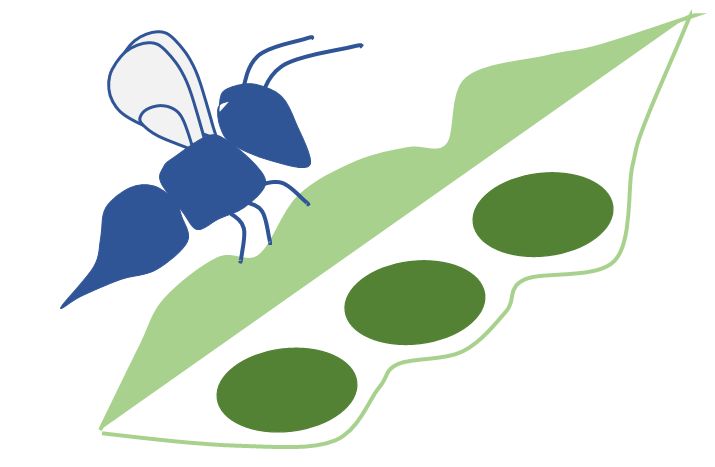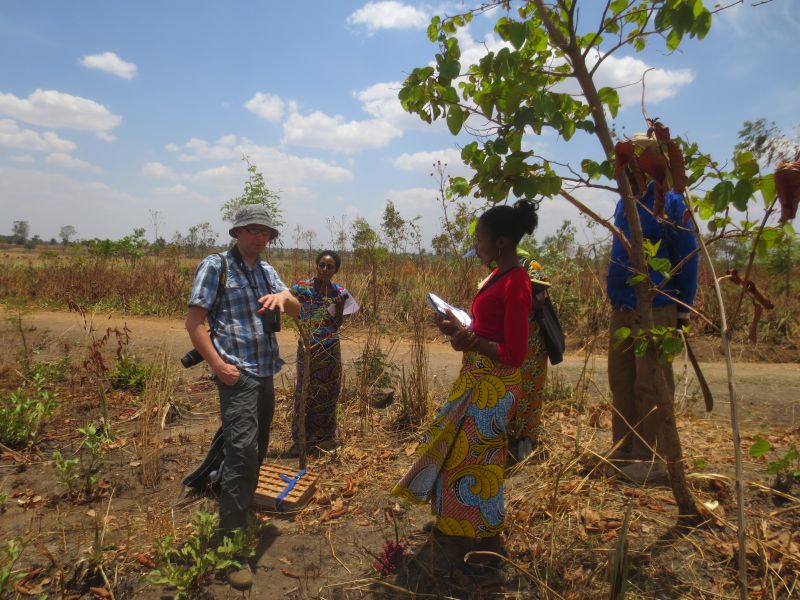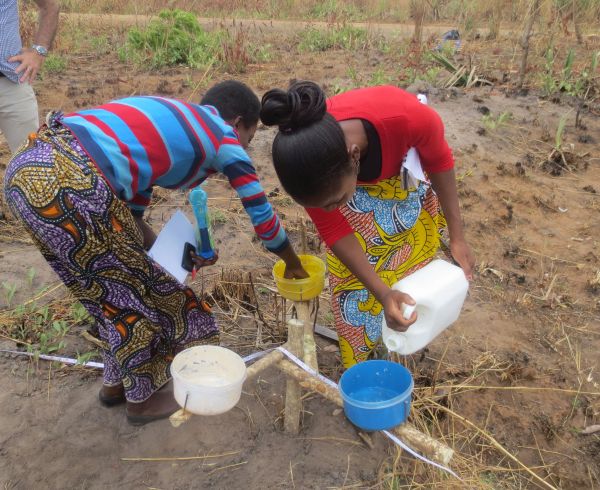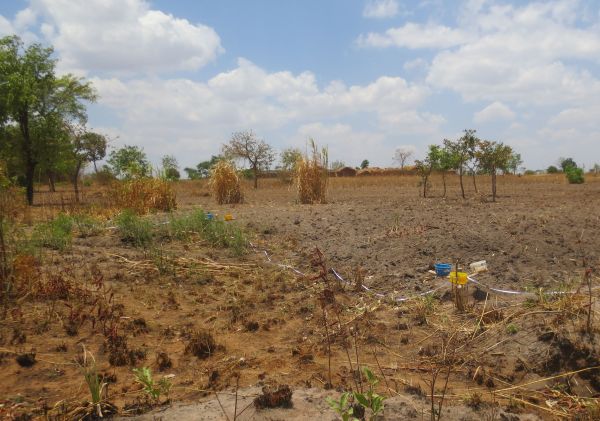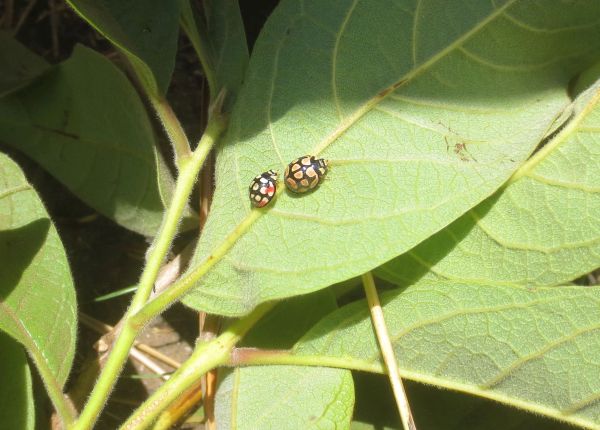Following on from last week's McKnight Foundation meeting held in Lilongwe, Malawi, and attended by several project partners, NRI and Kew staff have spent some time with LUANAR staff in and around Lilongwe, preparing for the next phase of field sureys and trials connected to the Darwin Initiative project.
Yolice Tembo accompanied Phil Stevenson, Iain Darbyshire and Sarah Arnold into the field to view farms, meet a few farmers, observe the ecosystems and importantly, to train graduate research assistants in the fundamental sampling and monitoring techniques needed to characterise the importance of semi-natural and unmanaged areas around farmland for insect ecosystems services.
In particular, the field assistants Dalitso and Kelita received training in walked transects, plant diversity surveys and pan trapping techniques.
At this time of year, this part of Malawi is hot, dry and windy and the farmers are between cropping cycles, having harvested the last season's crops but still waiting for the rain before planting the new season's crop. Therefore, it is not the most biologically diverse time of year from the point of view of invertebrates or plants. Nonetheless, some beneficial invertebrates were observed during the day's work, including spiders, lady beetles and a praying mantis.
We hope that the work in Malawi will provide us with valuable information about the importance of field margins and other non-cultivated areas in supporting sustainable yields, and also enable us to understand how generalisable certain recommendations about planting and margin management may be between countries and regions.
